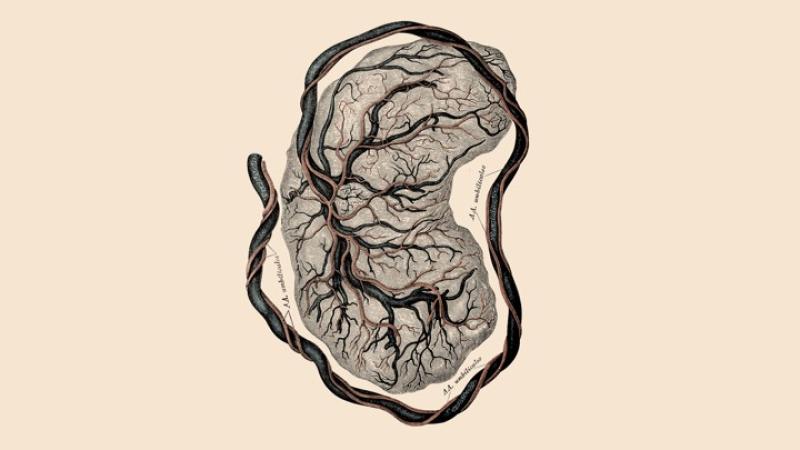A Breakthrough in the Mystery of Why Women Get So Many Autoimmune Diseases


Evolution might have played a trick on women’s immune systems.

Autoimmune diseases turn people’s own immune systems against their bodies. In the United States alone, women represent 80 percent of all cases of autoimmune disease. Women are 16 times more likely than men to get Sjogren’s syndrome , in which the immune system goes after the glands that make tears and saliva, and nine times more likely to have Hashimoto’s thyroiditis , in which it sets its sights on the thyroid. Sjogren’s forced Venus Williams to drop out of the U.S. Open in 2011. The singer Selena Gomez underwent a kidney transplant after suffering complications from lupus, which is eight times more common in women than in men.
Some scientists now think the placenta itself might be the reason why women are so disproportionately affected. In a paper published last week in the journal Trends in Genetics , Melissa Wilson , an evolutionary biologist, along with her colleagues from Arizona State University, put forward an explanation called the “pregnancy-compensation hypothesis.” It suggests that women’s immune systems are engaged in a fierce tug of war with placentas, even when the organs aren’t actually present.


I wonder if hormone therapy would be an option..
Either way, very very interesting article.
Possibly, or perhaps some other way to mimic the effects of pregnancy and the presence of a placenta on the immune system. We know that the immune system is compromised during pregnancy, but I don't know if we've discovered the mechanism by which that happens.
My late wife developed late onset of RA and Von Willibrandt's disease. I developed late onset RA as well. I have a adult daughter who has been diagnosed with Lupus/RA. My only son who passed away in April of 2017 showed no signs of any autoimmune diseases. Our family Rheumatologist said my daughter most likely inherited the traits from her mother passed down through the maternal line and it remained dormant until her mid 30's.
I'm sorry about your wife and son.
As far as your daughter, it is very common for autoimmune disorders to remain dormant until the 3rd or 4th decade of life. Onset of symptoms and diagnosis, which may take a while, in a 40-ish woman is fairly typical of many autoimmune disorders.
The only person I knew who had lupus was a woman - never heard of a man contracting it. The discovery may now have been made, so now it follows to try to do something about it that will not adversely affect conception, pregnancy and childbirth.
Among men, the most famous sufferer of lupus is the singer Seal, who has scars from the typical butterfly rash. I believe he had discoid lupus, though, which is a less severe type, with the effects confined to the skin, sparing the internal organs.
I found this article very interesting, but something comes to mind. Many women get autoimmune diseases in their 20's. I have 3, Kikuchi's disease, Sjogren's, and ankylosing spondylitis, which they are not sure how to classify. Both my daughters have AS and one has Hashimoto’s, as does my sister. To me, this looks more like a familial predisposition to autoimmune diseases than anything else.
Or is it that we should be having babies in our teens (we didn't use to live so long)?
But then again, this article is more about why more women, so maybe it's a bit of both?
I think a bit of both is probably as good a guess as any. Perhaps women in general are more prone, due to having fewer babies and not being pregnant as teens, and some women are genetically even more prone than women in general.
Also, pregnancy seems to cause autoimmune disorders in many women, rather than protect against them.
Wow, that is interesting. I know 2 women that happened to. They got hypothyroidism.
I know several, too. And my TSH was borderline after I had my son - not technically hypothyroid, but right on the line. It bounced back to normal after a few months.
I could chalk this all up to a rebound effect, and then the placenta idea fits, but one would have to have at least one baby to get the effect of not having more. It still doesn't explain the large number of women who get autoimmune diseases that never get pregnant.
Is one conclusion that women would be better off to be constantly pregnant?
That wouldn't be very PC...
No. Pregnancy carries its own risks. But if we can determine why women are more prone to autoimmune disorders than men, perhaps we can devise a cure or preventive measure. If the repeated development of a placenta is protective against such conditions, maybe we can determine why, and find a way to mimic that effect that doesn't require pregnancy.
That might be more desirable, for most women.
No one could be that stupid!
... oh wait...